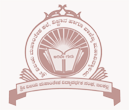Department of Economics
Department of Economics is one of the major department that was established in the same year of the establishment of college. From the beginning the department attracted good number of students and main source of attraction was leadership provided by Prof Madi, Prof. Jalihal and presently headed by Dr. M.G. Bangari and Dr. M.S. Mirjekar. He is not only encouraged the students to study the Economics as major subject.
COURSES OFFERED
- BA Economics
- B.Com Economics (OEC)
- BA Economics
- B.Com Economics (OEC)
- ECONOMICS CO1 Intellectual GrowthCO2 Develop the ability to explain core economic terms, concepts and theories.
- Explain the function of market and prices.
- Apply the concept of equilibrium to both microeconomics and macroeconomics.
- Identify key macroeconomics indicators and measures of economics change, growth, and development.
- Define and explain the process of calculating national income, identify its components, 16 demonstrate circular flow of income, analyze the various income identities with government and international trade, and define the concept of green accounting.
- Understand Say’s law of market, classical theory of employment and Keynes objection to the classical theory; demonstrate the principle of effective demand and income determination.
- Explain economic growth and development, illustrate Harrod-Domar and Solow’s growth model, distinguish between economic growth and technical progress.
- Analyze different phases of trade cycle, demonstrate various trade cycle theories, understand the impact of cyclical fluctuation on the growth of business, and lay policies to control trade cycle.
- Identify and discuss the key concepts underlying comparative advantage.
- Identify and explain major types of market failures.
CO3 Demonstrate the ability to employ the “economic way of thinking.”
- Discuss the application of marginal analysis.
- Explain the use of benefit/cost analysis.
- Explain the contribution of economics to the analysis of non-market social issues.
- Understand how factor market works; illustrate basic tools in welfare economics.
- Understand international and inter regional trade, identify and understand various trade theories, analyze the various types of restrictions of international trade.
- Assess the role of domestic and international institutions and norms in shaping economies.
- Understand the sources of finance both public and private; demonstrate the role of government to correct market failures and possible advantage of public financing.
- Attain the advantages and knowledge of public investments and other government expenditures. Understand the causes of growing public expenditures for various programmers and policies within and outside the country.
CO4 Apply economic theories and concepts to contemporary social issues, as well as formulation and analysis of policy.
- Describe how economic trade-offs and social values impact public/private social policy, and the success or failure of policies to achieve intended outcomes.
- Develop ideas of the basic characteristics of Indian economy, its potential on natural resources.
- Understand the importance, causes and impact of population growth and its distribution, translate and relate them with economic development.
- Understand agriculture as the foundation of economic growth and development; analyze the progress and changing nature of agricultural sector and its contribution to the economy as a whole.
- Grasp the importance of planning undertaken by the government of India, have knowledge on the various objectives, failures and achievements as the foundation of the ongoing planning and economic reforms taken by the government.
- Understand agriculture as the foundation of economic growth and development; analyze the progress and changing nature of agricultural sector and its contribution to the economy as a whole.
CO5 Recognize the role of ethical values in economic decisions.
- Distinguish between normative and positive economics.
- Identify the limits of economic analysis.
- Compare and contract efficiency and equity.
CO6 Skill Areas Apply both oral and written communication skills within the discipline.
- Present an economic argument in quantitative terms.
- Demonstrate ability to solve systems of equations.
- Be able to conduct economic analysis using equations and graphs.
- Teaching
- Administration ,, IAS, IPS, IES, KAS etc.
- Books-4256
- Journals-02
- Teaching
- Encouraging the students to undertake project work on different Socio- Economic issues.
- Encouraging the students to take Competitive Examinations.
OUR FACULTY
- Dr. M.G. Bangari – Associate Professor
Qualification: MA., M.Phil.,, Ph.D
Service: 34 years
2. Dr. M.S. Mijekar – Associate Professor
Qualification: MA., M.Phil.,. Ph.D
Service: 18 years
